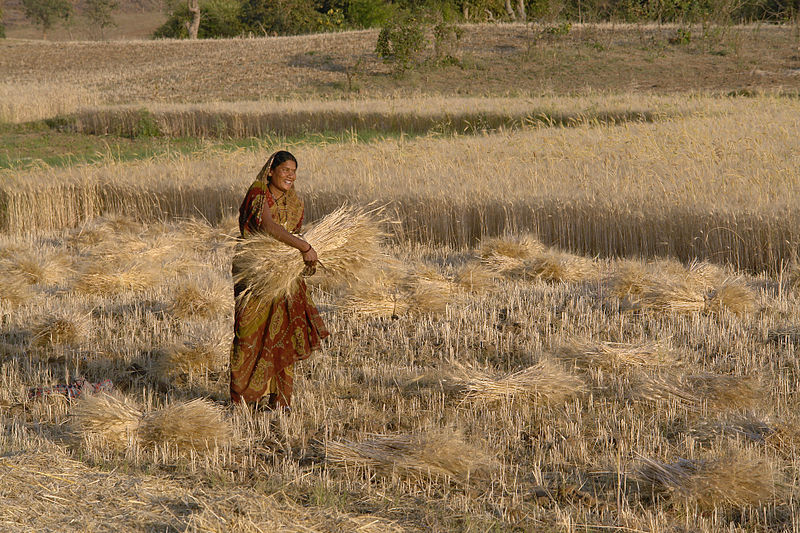Climate Change and Women: How Global Temperature Rise Will Affect Women Laborers in the Global South

Image Courtesy of Yann Forget / Wikimedia Commons / CC-BY-SA-3.0
On October 8, the Intergovernmental Panel on Climate Change (IPCC) issued a report to push governments around the world to take action against global warming. The report made clear that unless the greenhouse emissions are drastically lowered and the global temperature rise is limited to 1.5 degrees Celsius (2.7 degrees Fahrenheit), the world would reach the point of no return.
Created after two decades from the Kyoto Protocol, which signatory nations failed to comply with after the U.S. pulled out on March 28, 2001, the Paris Agreement was hoped to act as a preventative measure to prevent the acceleration of climate change. The agreement united all the nations for the first time in history, and aimed to prevent the disastrous effects that the predicted global warming will possibly have – sea level rise, rainfall extremes, and drought – by decreasing greenhouse emissions. These hopes were shattered however, when President Trump announced his intention to pull the United States out of the agreement on June 1, 2017.
Senior diplomats and heads of state from all around world expressed their concern over the decision. In his statements at the Singapore International Water Week, Former UN Secretary General Ban Ki-Moon said that the U.S. exit made the mobilization of financial support for the Global South harder and that the country has not only a political, but also a moral responsibility on the issue of climate change.
Considering the data released by World Resources institute, Mr. Ban is telling the truth. United States is a top emitter of carbon dioxide (CO2), a greenhouse gas, and its emissions make up 27% of the cumulative carbon emissions in the world, whereas the emissions of all the Global South countries combined make up only 17% of all emissions.
Even though the Global South has almost no responsibility in the current situation, IPCC report released in October shows that the predicted climate change would affect the Global South the most. Even a slightest change in the overall temperatures could make life in the region unendurable as a rise in already high temperatures could worsen hunger by hurting the crops.
The worsening of conditions in the Global South is especially dangerous for women in the region as their livelihoods are mostly dependent on the crops and other natural resources that are threatened. A report by Food and Agriculture Organization (FAO), shows that women farmers are responsible for 45-80% of all food production in their countries as of 2011. Considering the fact that the majority of the world’s poor are women, and that the existing discriminatory barriers in areas such as education and employment prevent a majority of women in the region from becoming professionals working in fields other than agriculture, it becomes clear climate change is not just an issue of environment, but also of gender equality. All countries, especially the financially stable entities of the Global North, should do their best to prevent and end this exploitation from happening.
Empowering women in the region is essential to mitigate the negative consequences of climate change. Even though women are responsible for managing most resources, only few are involved in the decision making process. However, women’s inclusion in governing bodies is essential to design and implement viable solutions which will increase sustainability. Increasing women’s access to land and technological advancements in agriculture – including water-conserving crops – is crucial as the international policies to decrease the effects of climate change will become more effective with such developments.
The report issued by IPCC makes it clear how close the world is to a major climate disaster which will worsen the living conditions in the Global South, a region that played little role in global warming. All countries in the world should be involved in the efforts to decrease greenhouse emissions. As women in the Global South are particularly vulnerable to the effects of this climate change on agriculture, integrating gender perspectives in negotiations also carries vital importance.




